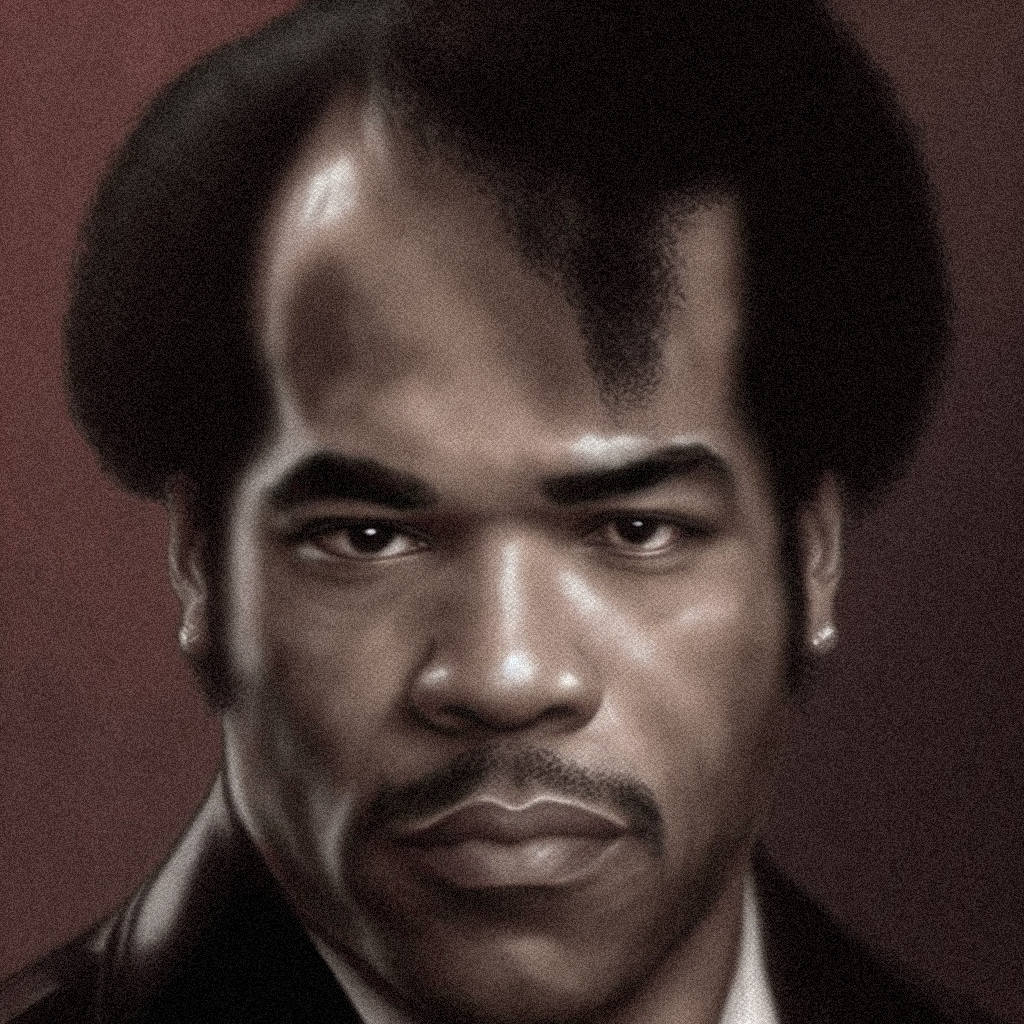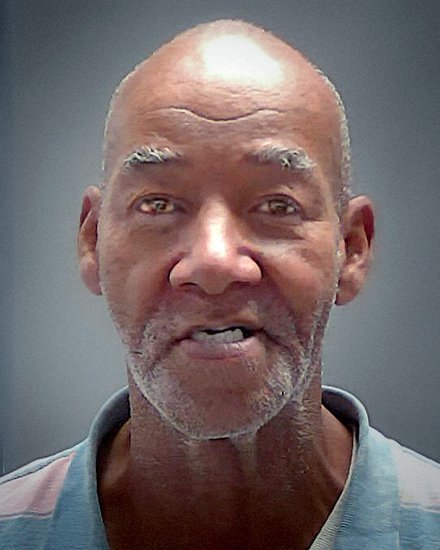Justice at last in Selonia Smith Reed case
In January 2019, I arranged a reunion between two old friends, two ladies who once worked together at Seventh Ward General Hospital. Both wanted to discuss the 1987 murder of co-worker Selonia “Loni” Smith Reed.
Loni left the hospital for a Citizen’s National Bank teller position in 1986. Within a year, her husband killed her in what Hammond city councilman Wilbert Dangerfield called the most brutal murder in the history of “Bloody Tangipahoa” Parish.
On January 11, 2023, the 21st Judicial Court will sentence Reginald Lathan Reed to a mandatory minimum sentence of life in prison. A jury unanimously returned his guilty verdict at 7:30 on a Friday night after deliberating only four hours on November 18.
District Attorney Scott Perrilloux told the Hammond Daily Star that week, “It was very satisfying to allow the Smith family to get this resolution. I know it’s something they’ve been waiting a long time for, and we’re glad to help them get to this point.”
Assistant district attorney Taylor Anthony served as chief prosecutor, assisted by Angel Monistere. Anthony agreed with Perrilloux. “I was pleased to tell Selonia’s story, bring justice for her and her sisters and her family, and close this chapter once and for all.”
Over coffee in 2019, Selonia’s sister, Gwen Smith, told me how Reginald Reed, her brother-in-law, would arrive at the hospital each payday. She said he always made a scene, upsetting Loni and leaving with her paycheck. Following those paydays—and a few other days—Loni reported for work in dark glasses and refused to let anyone see her eyes.

Gwen said Loni did not own a car when she worked at the hospital. Reginald would pick her up from work each day, often hours after her shift had ended. Daily, Gwen offered to drive Loni home, but her sister always refused, saying it might anger Reginald.
“And he would have been angry too,” Claudette, the other co-worker, told me that day. “I should know. I’ve been afraid of him all my life.” Claudette’s maiden name was Reed. Reginald is her brother.
Claudette said Reginald raped her as a child. The first time, she said, she was 11 years old. The last time, she said, happened while he was married to Loni.
“I was a senior at Hammond High,” Claudette remembered. “I expected my mom to pick me up after school, but Reggie picked me up instead. He refused to take me home and drove around until dark, saying he wanted to show me something. Then he pulled the car over and showed me something I didn’t want to see.”
Claudette, a strong and spirited woman, cried as she recalled her brother saying, “make me feel good like you used to.”
The two women stared silently at each other for five minutes, and Claudette took Gwen’s hand. “I’m sorry, Gwen,” Claudette said. “I should have told you, but I didn’t know how.”
“What do you mean?” Gwen asked.
“I heard you on tape,” Claudette explained. “Reggie tapped their house telephone line and recorded all Loni’s calls. Most were with you.”
“Remember the time he sent flowers to her anonymously? You and Loni talked about it on the phone. Loni told you she knew it was Reggie because she didn’t have a secret admirer.”
“I do remember that,” Gwen said. “She was so scared that week.”

One month after my discussion with Gwen and Claudette, Taylor Anthony gathered all the original police reports and took custody of evidence from the Hammond Police Department. From the evidence collected by Hammond Police detective Vincent Giannobile and others thirty-five years ago, he soon felt confident that Reginald Reed killed Selonia.
The week of her murder, one witness spotted Reginald Reed and co-defendant Jimmy Ray Barnes in the parking lot, where police found Selonia’s body hours later. The witness identified Reed from a photo lineup.
Anthony and State Police Investigator Barry Ward found Barnes in Atlanta, Georgia, and at trial, Barnes cooperated and testified against Reed, a former employer.
“Jimmy Ray’s mother put him on a bus to Atlanta,” Claudette told me, “After Reginald shot him in the neck and left him for dead in Bayou Manchac. When Jimmy Ray got out of Big Charity, his mother made him leave town.”

Barnes left Louisiana within months of Loni’s murder and returned in handcuffs thirty-three years later. Today, he is serving a five-year sentence on the reduced charge of accessory to murder after the fact.
“Not long after Little Reggie was born,” Claudette remembered. “I was at their house. Loni lost weight fast after her pregnancy, and I asked her how she did it. She got on the floor to show me, doing sit-ups. That’s when Reginald came in. He said she was losing weight for her boyfriend and stomped her in the stomach.”
“My God. Why?” I asked.
“Oh,” Gwen said. “He was extremely jealous.”
“Yes,” Claudette said, nodding. “He tried to make people think she was seeing a Hammond lawyer, but I listened to those tapes. She really loved Reggie. She wanted to have another child by him, but she was just deathly afraid of how he’d react if she mentioned it.”
“How did you hear the recordings?” Gwen asked.

“Right before their house fire,” Claudette said. “Reggie moved a bunch of boxes into our mother’s garage. A nosy teenager, I went through the boxes and found and played the tapes.”
“Oh, the fire,” Gwen said, looking at me. “Reginald sent Loni to stay with our mother that week. I called there and told her the house was burning. Loni said she suspected something would happen. Reginald had increased their homeowner’s insurance a few weeks before.”
Both sisters told me that shortly before Loni’s murder, Reginald increased the value of her life insurance policy and purchased a second one. Because of the brutality of the murder, they said, Reginald tried to collect double indemnity.
Claudette said she held her tongue all her life out of fear.
“In 1985, my brother took Loni and me to see the movie the Jagged Edge. We hated that movie, but Reggie loved it. It was about a man who murdered his wife for the insurance money.”
“And a few months after Loni died, Reggie got my husband to help him take a heavy garbage bag from his shed and drop it into a dumpster off Airline Highway in LaPlace. When they were loading it in our truck, I overheard Reggie laugh, saying something about ‘Sloppy HPD’—that was what he always called Hammond Police.”
“Later,” she said, “Reggie tried to convince me to increase my husband’s life insurance. I refused and told Reggie he was crazy, but he got someone to do the paperwork anyway.”
Claudette opened a leather binder, showing me the unregistered insurance policy. The agent listed the payout at one million dollars.
According to the sisters, Reginald Reed filed to collect on Selonia’s two life insurance policies. He also tried to draw her social security the year she would have turned sixty.
The week following Selonia Reed’s murder, 26-year-old Willie Jones told co-workers he had stood in Reginald and Loni’s wedding. Then, crying and upset, he left work, saying he had to confront Reginald Reed. The date was August 31, 1987.

Willie Jones’s aunt told me she was on the phone with her nephew later that night. He asked his aunt to hold on. He had another call waiting and switched lines. Minutes later, he told his aunt Reginald Reed had car trouble and needed help.
Hours later, police found Willie Jones’s body in the roadway near the Tickfaw exit off Interstate 55. Someone had shot him in the face with a .357 Magnum before a trucker from McComb, Mississippi, accidentally ran over his skull. Willie Jones’s significant other, Michael Morris, another Reed associate, later confessed to the crime.
At Reginald Reed’s pre-trial in December 2019, Defense Attorney LaToia Williams-Simon asked the court to suppress all allegations and potential witness testimony related to arson, insurance fraud, statutory rape, cocaine use, cocaine distribution, contributing to the delinquency of a minor, and participation in homosexual or bisexual acts.
Judge Beth Wolfe agreed, concerned that introducing such information at trial might prejudice the jury and cause a mistrial. However, when Reed’s court-appointed attorney asked the judge to suppress allegations against the defendant regarding spousal abuse, she refused.


Evette February 7, 2023 (1:57 pm)
Where would Reginald spend his sentence ?
HL Arledge February 7, 2023 (6:01 pm)
I don’t think it has been decided yet. He also has a rape trial coming up in March. I did hear he may be moved to Hunt Correctional until a final decision is made.